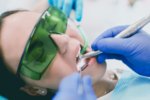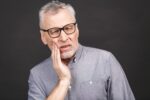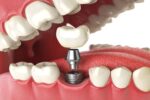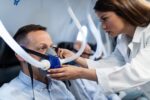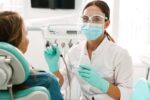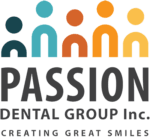If you consistently have inadequate sleep, it can impact your general health and make you groggy and cranky. Sleep apnea is frequently linked to an increased risk of heart disease, excessive blood pressure, and atrial fibrillation.
Aggregately, 5.4 million Canadian adults face sleep apnea symptoms, although most are unaware. Breathing pauses while sleeping, loud snoring, and daytime tiredness are typical sleep apnea symptoms. Speak with a sleep apnea dentist in Calgary if you struggle to stay awake, concentrate, or complete easy chores.
The good news is that there are non-drug methods for both preventing and treating sleep apnea, and a dentist near you can recommend them thoughtfully. Continue reading to explore more.
Causes of Sleep Apnea
During obstructive sleep apnea patients’ sleep, the muscles in the back of the throat relax, making it more difficult for air to pass through. One cannot breathe deeply enough when the airway is closed, as when snoring occurs. The inability to restart airflow due to insufficient oxygen causes partial or complete awakenings. These breathing pauses are constant during sleep.
Communication problems between the brain and the breathing muscles are the root cause of central sleep apnea. In CSA patients, the brain stem, a component of the brain, does not detect the body’s carbon dioxide levels when you are sleeping. It brings on repeated instances of abnormally shallow, slower breathing.
Symptoms and Signs of Sleep Apnea
- Experienced apnea: this symptom, which a bed companion typically reports, has the highest predictive relevance. Obtaining a patient’s history when a sleep witness is present is important. Without a witness, a patient may show a symptom like gasping awake, which may have equal importance to the events that were seen.
- Non-restorative sleep: an overwhelming sense of sluggishness following a good period of slumber
- Sleep attacks: even though passing out during a sleep attack is a characteristic narcoleptic patient symptom, some patients with intense pressure to sleep will describe passing out, sometimes misdiagnosed as syncope.
- Headaches: especially in the morning after a restless night’s sleep Disorders of the mood: A drowsy patient will usually report feeling depressed or anxious.
- Memory loss: a night of sound, restorative sleep is necessary for normal learning or memory function.
- Dry mouth: is a typical symptom that may indicate mouth breathing, particularly in prone sleepers.
Risk Factors for Sleep Apnea
Women are more likely to experience sleep issues after menopause, despite sleep apnea being twice as common in men. Additionally, overweight individuals, African Americans, Hispanics, and Pacific Islanders are more likely to experience it. In general, it’s a good idea to discuss sleep apnea with a dentist in SW Calgary if you:
- Are 40 years or older.
- Have high blood pressure or diabetes.
- Are overweight or obese.
- Snore while you sleep.
- Frequently gasp for air at night or stop breathing for a while.
- Experience headaches after morning smoking
- Have a huge neck.
- Have a smaller airway in your nose, throat, or mouth
- Have allergies.
Diagnosis and Treatment for Sleep Apnea
Reviewing a person’s symptoms, general health, and physical examination are usually the first steps in a sleep apnea evaluation. It seeks to pinpoint sleep apnea signs and risk elements that might exacerbate the illness.
Even though testing is necessary to diagnose OSA, the existence of symptoms can help with the diagnosis and help assess how serious the condition is.
A sleep study is required to identify central or obstructive sleep apnea. Polysomnography, performed during an overnight stay at a dedicated sleep laboratory, is the most reliable type of sleep research.
Weight loss, exercise, sleeping on your side, giving up smoking, and, if necessary, better allergy and asthma management can all help with milder cases. Additional therapies might be required if your sleep apnea doesn’t improve or worsens.
- CPAP therapy (Continuous Positive Airway Pressure): A CPAP machine is still the first-line,moderate-to-severe sleep apnea treatment near you.
- Second: Oral appliances for use at night. These appliances, which fit your mouth like a mouth guard or retainer, help realign the tongue and jaw to keep your throat open.
- Surgery: Usually used as a last resort, this method may entail surgeries to trim excess tissue from the throat’s rear or realign the jaw.
Complications of Untreated Sleep Apnea
- Driving accidents.
- Stroke, high blood pressure, heart disease, heart failure, and an irregular heartbeat.
- Metabolic conditions, such as Type 2 Diabetes.
- Thoracic hypertension.
- Cognitive issues, such as memory and concentration.
- Mood swings, such as irritation and an increased chance of depression.
- Alcohol-unrelated fatty liver disease.
Are You Ready to Get Treatment?
Are you suffering from sleep apnea, or do you know anyone who does? Visit us at Heritage Park Dental and get satisfactory sleep apnea treatment in Calgary. Our professional team will treat your dental conditions using advanced technologies and brighten your smile.



